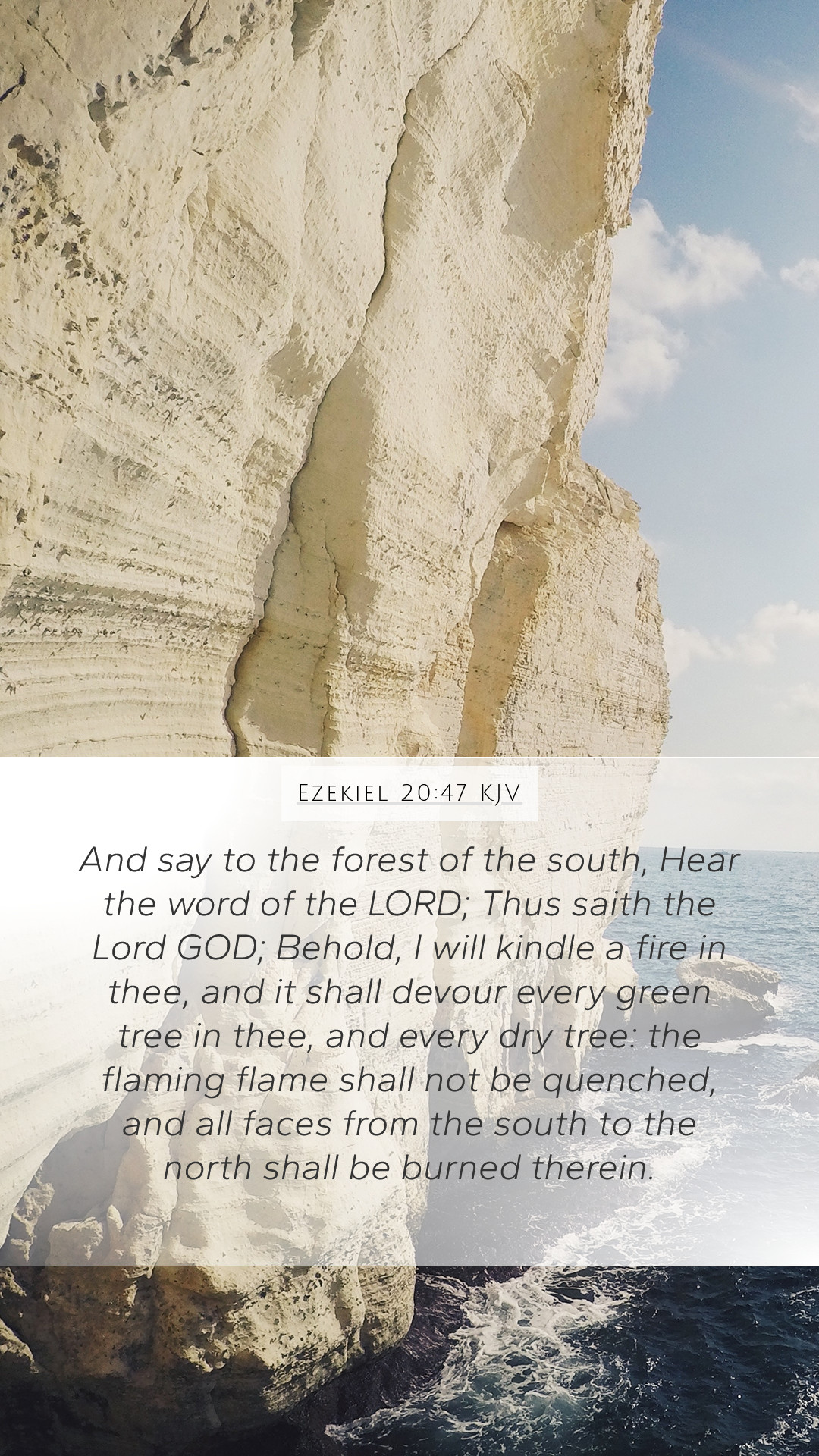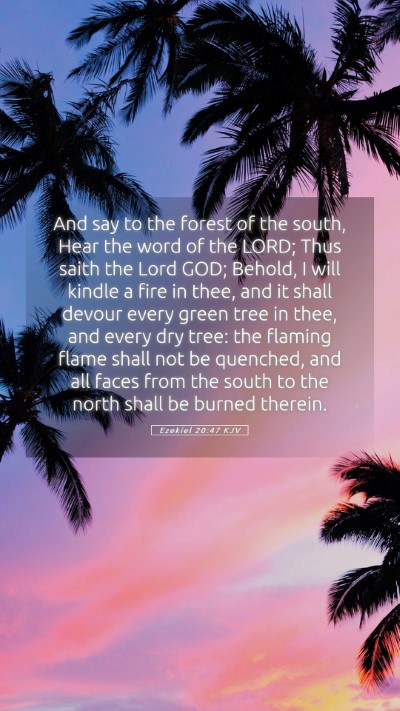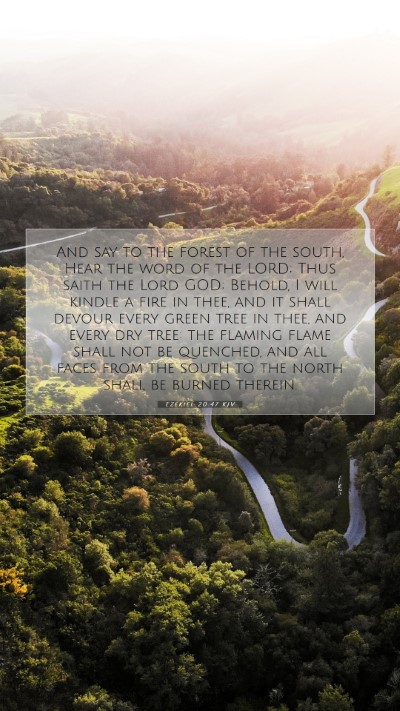Bible Verse Explanation: Ezekiel 20:47
Verse: Ezekiel 20:47 (KJV) - "And say to the forest of the south, Hear the word of the Lord; Thus saith the Lord God; Behold, I will kindle a fire in thee, and it shall devour every green tree in thee, and every dry tree: the flaming fire shall not be quenched, and all faces from the south to the north shall be burned therein."
Understanding the Context
This verse is part of a prophetic message delivered by the prophet Ezekiel during the Babylonian exile of Israel. The imagery of fire is prevalent in Scripture, symbolizing divine judgment and purification. Ezekiel uses this metaphor to illustrate God's impending judgment upon the people of Israel and the surrounding nations.
Commentary Insights:
- Matthew Henry: Henry emphasizes the seriousness of God's judgment, which affects all—from the mighty oak to the fragile shrub. He sees the fire as a representation of the consuming judgment that God brings upon those who rebel against Him.
- Albert Barnes: Barnes points out that the "forest of the south" specifically refers to Judah and Jerusalem. He interprets the fire as a metaphor for the destruction that shall come upon the region due to their idolatry and sin against God.
- Adam Clarke: Clarke gives a detailed analysis, noting that fire signifies both destruction and cleansing. The verse serves as a warning and a declaration of God's sovereignty over Israel’s fate.
Historical Context
The book of Ezekiel was written during a time of crisis for Israel. The destruction of Jerusalem and the temple had profound implications for the Jewish people, marking a significant moment of punishment due to their unfaithfulness. Ezekiel’s prophecies were meant to awaken the people to their sins and call them back to repentance.
Symbolism in the Verse
The imagery of a forest in flames represents the all-consuming nature of God's judgment. The distinction between "green trees" (life) and "dry trees" (death) signifies that no one is exempt from judgment—the righteous and the wicked alike will face God’s wrath.
Key Themes
- Divine Judgement: This verse calls attention to the reality of God's judgment against sin.
- Call to Repentance: Ezekiel serves as a voice urging the people to turn away from their sinful practices.
- God's Sovereignty: The control over nature portrayed here reaffirms God's authority over all creation.
Applications for Today
For modern readers, Ezekiel 20:47 serves as a reminder of the consequences of turning away from God. It encourages individuals and communities to seek restoration through repentance and aligns with the teachings of accountability before God.
Cross References
Ezekiel 15:6-8 - The analogy of trees being consumed represents similar themes of judgement.
Jeremiah 7:20 - God’s wrath kindled against His people for their disobedience.
Isaiah 10:16-19 - The destructive intent of God’s judgment as depicted through fire.
Scripture Analysis and Commentary Connections
This verse connects deeply with various biblical themes and interpretations surrounding judgment and repentance. When studying this scripture, consider utilizing Bible study tools and resources to uncover deeper meanings and historical contexts. Bible study groups can explore this verse together, allowing for a rich exchange of insights and applications in their daily lives.
Conclusion
Ezekiel 20:47 provides profound insights into the nature of divine judgment, the call for repentance, and the unwavering sovereignty of God. For those engaging in Bible studies, this verse offers fertile ground for discussion on how to interpret Bible verses and apply their meanings to life's challenges.


